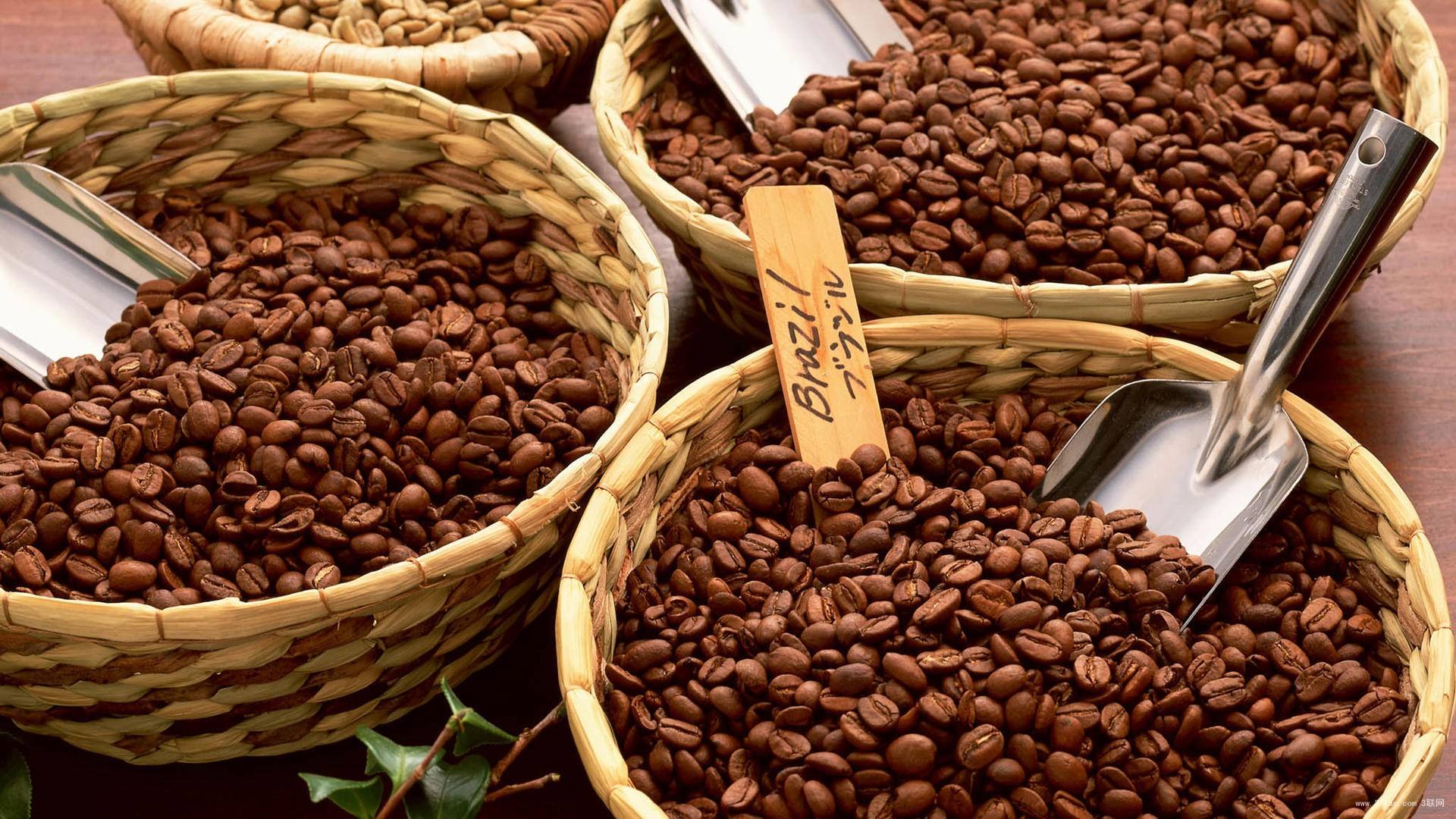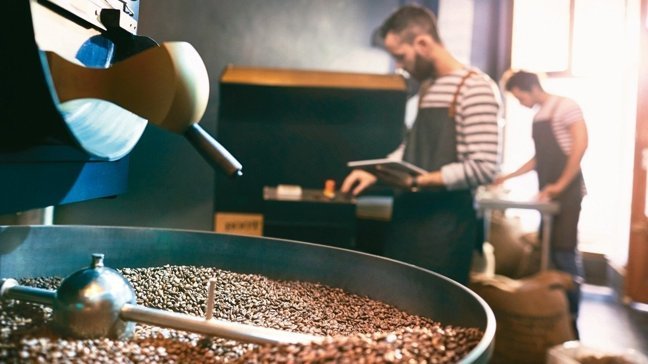Central American coffee beans have unique environmental advantages. This paper introduces the differences and characteristics of coffee in several regions.
Professional coffee knowledge exchange more coffee bean information please follow the coffee workshop (Wechat official account cafe_style)

High quality coffee beans from Central America
Black Gold-"Coffee"
Unique environmental advantages give birth to good coffee
Central America, one of the four largest coffee producing regions in the world, has the natural advantages of sunshine, land and mountains, coupled with an adequate working population, making the region an excellent area for growing and producing high-quality and refined coffee. At the end of the 19th century, in addition to actively passing the bill to promote coffee, coupled with modern scientific and technological planting methods, coffee became an important indicator of the economic growth of Central American countries.
Central American coffee estates, high altitude, fertile volcanic soil and tropical climate, such unique natural conditions, is the best place to cultivate high-quality refined coffee. The coffee produced in Central America belongs to the Coffee Arabica species, which is the top plateau coffee bean. According to statistics, the world's high-quality coffee beans are grown in areas between 25 degrees north latitude and 30 degrees south latitude, and Central America is located at the junction of North and South America, which is the paradise of coffee. There are seven countries in Central America, including Belize, El Salvador, Guatemala, Honduras, Nicaragua, Panama and Costa Rica. All seven countries in Central America produce coffee, among which Guatemala and Honduras are among the top 10 coffee exporters in the world.
General situation of Coffee production in six Central American countries
El Salvador-
Sa coffee has five major producing areas (Apaneca, Central Belt, Chichontepec, Tecapa & Cacahuatique Mountain Range), mostly distributed in the volcanic ash-covered mountain slopes or plateau areas at an altitude of 1200 meters above sea level. October to February of the following year is the coffee harvest and harvest season. The coffee beans it produces belong to Arabica species, with Pacas and Bourbon brands as the main brands, belonging to big beans, with sweet taste and excellent flavor. El Salvador is also an important producer of organic coffee.
Guatemala-
The latitude of Guatemala is about 15 degrees. Because of the long mountains and great regional climate changes, Guatemala's seven major coffee producing areas are all located in the highland topography under the subtropical climate, with rich and stable rainfall and excellent environment for fertile volcanic ash soil. the coffee beans produced are all Arabica, each with different flavors and characteristics, excellent sour taste and fruity aroma. It is one of the top coffee in the world and is suitable for individual consumption.
Among them, the coffee from Antigua is famous all over the world because of its slightly sour, rich glycol, and slightly volcanic charcoal flavor. The coffee of Guatemala belongs to Arabica, which is treated by washing. In the far northwest, there is a piece of Vivette Nango (Huehuetenango) highland. Because of the hot and dry wind blowing into the mountains from the de Royal Peck Plain in Mexico, the mountains are free from frost. Because coffee is grown above 5000 feet above sea level, the beans in this area are solid and full, have a special sour taste, have a slight wine flavor, and have a hard texture. It is also one of the most distinctive coffee in Guardia.
Nicaragua-
Nicaraguan coffee is mainly produced in the central and northern parts of the country, covered with volcanic ash and shaded by trees, resulting in high-quality Nicaraguan coffee, which is mediocre, mild and slightly sour, and is suitable for comprehensive coffee. Shade planting is its characteristic, while coffee beans are washed and dried in the sun. Nicaraguan coffee beans are larger than those of other countries. In particular, Maragogipe (a huge tree species called elephant beans) from Madagelba has a clear taste and excellent aroma, which is highly valued in the market for its round and soft texture.
Honduras-
In the past, Honduras was less well-known in the consumer market because it did not have strong support in the handling and transportation of raw beans. In recent years, Hongguo has actively changed and expanded the coffee industry, which has gradually opened up the popularity of coffee in Honduras in the international community. Honduras collects 3 million bags of coffee every year, providing the world with perfect coffee, unique coffee aroma and quality, making it the second largest coffee exporter in Central America and the tenth largest coffee exporter in the world.
Honduran coffee is divided into six major producing areas, spread to the west and south, namely Santa Barbara (Santa Barbara), Periso (El Paraiso), Copan (Copan), La Paz (La Paz) and Comayagua (Olan Mound), with an average height of more than 1100 meters above sea level. Coffee varieties are 100% Arabica, mainly Typica, Bourbon, Caturra, Villa Sarchi and Lempira brands. Coffee in Honduras is less acidic, while caramel is sweeter. The taste of coffee from these five different producing areas is also slightly different, some slightly sour, some have a unique flavor. Its quality is not poor, but because it is still promoting popularity, the current price of coffee in the country is quite competitive.
Panama-
The flavor and texture of Panamanian coffee is medium and uniform, with a temperament similar to that of the Blue Mountains. Panamanian coffee is very smooth, full granule light weight, and perfect acidity balance, its high-quality coffee bean flavor is pure, very characteristic, it is recommended to adopt moderate roasting. Most Panamanian coffee belongs to the middle and low price level, but in recent years, Panama has also actively promoted the cause of boutique coffee, and sold its high-quality coffee beans at competitive auctions, which has attracted the attention of the world. Good Panamanian beans with clean and clear, bright and gentle taste, medium mellow performance is amazing, is considered by coffee makers to be one of the very good coffee, many buyers like to use Panamanian beans as comprehensive products, almost all high-quality coffee beans are shipped to France and Finland
Belize-
Belize coffee species are also Arabica species, which grow naturally around the rainforest and do not use any herbicides or insecticides. The perfect humidity and heat give birth to Belize's unique organic coffee. Mild taste, suitable for medium roasting, whether comprehensive coffee or single product. Due to the scarcity of output, it is not easy to buy.
The potential of coffee business is amazing.
With the shortening of the distance between the world and the influence of western culture, people's way of life is becoming more and more westernized. Coffee has become an indispensable product for many people's lives.
Arabica coffee, the first brother in the market.
People's taste in coffee is getting better and better, and the demand for good quality coffee is getting higher and higher. as a result, the import volume of Arabica alpine coffee, which is of higher quality, is getting higher and higher year by year. Central America, which mainly produces Arabica alpine coffee, used to produce coffee from Europe and the United States. Domestic coffee manufacturers have to go to Italy or the United States before they can import Central American coffee, increasing a lot of transportation and procurement costs. However, in recent years, with the promotion and assistance of relevant diplomatic and economic and trade units and operators, many domestic companies have gone to Central American countries to purchase their own raw coffee beans, which can not only reduce time and procurement costs, but also master the freshness and quality of coffee beans.
Director Wu Yiling of Taiwan mentioned that almost all Central American countries have friendly diplomatic relations with China. In recent years, the Central American Economic and Trade Office has made great efforts to promote it, and has organized many missions to visit the local area, including visiting the coffee associations of Central American countries, visiting the main exquisite coffee producing places in Central America, and going deep into the local exquisite coffee producing areas, coffee processing plants, roasters and so on. And arrange to visit exquisite coffee farms in various countries. In addition, we directly negotiate with coffee producers, coffee associations, cooperatives and coffee exporters of various countries to obtain first-hand information and new sources of coffee manufacturers in Central America.
Since 2008, Taiwan's Central American coffee imports have shown a trend of substantial growth. In particular, between 2000 and 2009, Central American coffee raw beans imports were second only to Asia and South America, ranking third (about 970000 KGM). Wu Yiling said that Taiwan's Central American coffee imports were originally almost concentrated in Guatemala, Honduras and El Salvador coffee beans, after 2008. Coffee beans from other countries, including El Salvador, Nicaragua and Panama, are also well received by domestic companies, and the proportion of imports is gradually increasing.
Two conditions for import: quality and price
Over the past decade, many cafes and cafes have joined the coffee market, making coffee a product in people's lives, and it has become common for everyone to have a cup of coffee in the morning. When considering the purchase of coffee beans by domestic coffee manufacturers, in addition to quality, price is also one of the important factors. Under the premise of cost and price, different kinds and grades of coffee beans from different regions are imported and mixed. It is the comprehensive coffee we drink on the market at present.
Transferred from
Central American Free Trade Agreement Product Network
Important Notice :
前街咖啡 FrontStreet Coffee has moved to new addredd:
FrontStreet Coffee Address: 315,Donghua East Road,GuangZhou
Tel:020 38364473
- Prev

Coffee and health | Diabetes can't drink coffee? Does coffee increase the risk of diabetes?
Professional coffee knowledge exchange more coffee bean information Please follow the coffee workshop (Wechat official account cafe_style) recently a fan asked the editor: is it true that people with diabetes can't drink coffee online? It mentions this situation: the news media say that it is good to eat XX, and then they say that eating XX is not good. Contradictory nutrition concepts spread in the media, and the result is that the more the truth.
- Next

Map of World Coffee Culture | differences in roasting Coffee in the three Coffee Culture circles in Europe
Professional coffee knowledge exchange more coffee bean information please follow the coffee workshop (Wechat official account cafe_style) there are three major drinks, wine, tea, coffee, the historical background of the three is very different. Human drinking has a history of more than 12000 years, and there are records of making and drinking alcohol in Mesopotamia (two river basins) dating back to the Neolithic Age.
Related
- How did the Salvadoran coffee industry develop in Central America?
- What exactly does the golden cup extraction of coffee mean?
- The Origin of Coffee flower
- [2023 Starbucks World Earth Day] there are more meaningful things besides free Starbucks coffee!
- What kind of coffee is there in Spain? 9 Flavors of Spanish Coffee
- Aromatic African coffee| Kenya's coffee culture and historical production area
- Liberica Coffee Bean knowledge: the characteristics of Liberian Coffee beans of the three original species of Coffee beans
- The origin and formula of Spanish latte introduces the taste characteristics of Bombon coffee in Valencia, Spain.
- How to adjust the solution of over-extracted coffee
- What is the tasting period of coffee beans? What is the period of coffee and beans? How should coffee wake up and raise beans?

